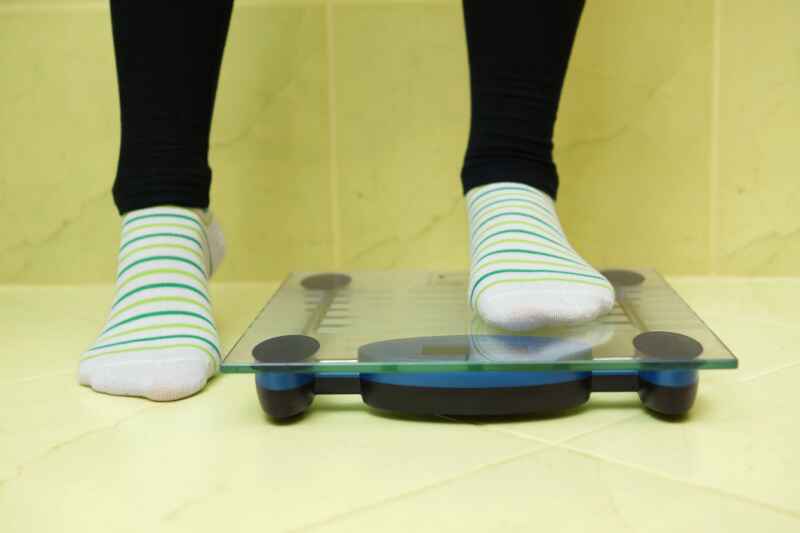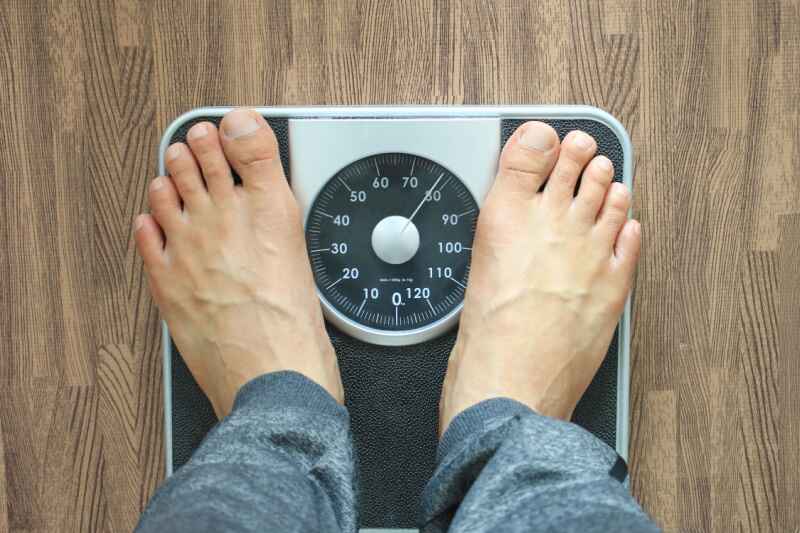Are you starting every day by checking your weight? Does the number displayed on the scale set the tone for your entire day, lifting your spirits if it’s lower or dampening them if it’s higher? If this sounds familiar, it’s time to reconsider the impact of your weighing scale obsession on your well-being.
Learn from experienced mental health, fitness, and nutrition experts how to quit unhealthy habits and adopt a healthy lifestyle in the new year. In this blog, Doctor Rajanshu Tiwari will guide you on how to keep weighing scale obsession at bay.
What you need to know:
- What is meant by weighing scale obsession?
- Why weight obsession can be detrimental?
- Breaking free from weighing scale obsession
What is meant by weighing scale obsession?

The weighing scale is common in most homes, yet its usage varies from one person to another. Some fear it and hide the weighing scale, reflecting a tendency to avoid it. Others might frequently check their weight, sometimes multiple times a day, also known as weighing scale obsession. This can occur because of the need to attain a desired weight and can lead to poor decisions like:
- Skipping meals
- Eating comfort food when faced with weight gain
- Struggling with self-care because your efforts are not visible
However, you must understand that weighing scales are only sometimes accurate. It is usual for your weight to fluctuate by a few kilograms on some days. It’s essential to understand its limitations and recognize that these daily changes are usual.
- Different scales may show slightly varying weights due to calibration differences.
- Your weight is typically lower in the morning due to overnight water metabolism.
- Water retention, influenced by diet and hormonal changes, can add to your scale weight. Drinking more water can reduce this retention.
- Starting a new exercise routine initially increases weight as muscles absorb water.
- Stress can also impact your weight, adding another factor to weight management.
Why weight obsession can be detrimental?


Weight obsession can affect your emotional state in a negative way. It can increase stress, disrupt your sleeping habits, and cause eating disorders and a difficult relationship with food, which can, in turn, lead to uncontrollable fat gain or loss.
Many people experience weighing scale obsession before social events like weddings or holidays. However, just monitoring your weight cannot reduce it rapidly. Weighing scale obsession is like trying to do a week’s worth of exercise in one go. While regular exercising can be one of the best things for the human body, over-exercising can put your body under excess stress, making you feel exhausted, anxious, and depressed.
Breaking free from weighing scale obsession
Here are some tips that can help you break free from weighing scale obsession:
- Develop a positive mindset: Before stepping on the scale, take a deep breath and remind yourself, ‘My weight is not my identity. It is a part of my health journey.’ Repeat this affirmation, believing in it more each time. The goal is to internalize this truth to be comfortable with yourself.
- Limit scale use to once daily: While it’s tempting to constantly monitor progress, especially when adhering to a balanced diet, frequent checking can lead to an unhealthy fixation and weighing scale obsession. To avoid constant checking, choose a hidden spot or ask any family member to keep it out of sight. You can also turn weight-checking into a playful challenge. Remind yourself that each time you successfully avoid stepping on the scale, you win!
- Understand what numbers mean: Remember, a scale only shows weight, not muscle and fat composition in your body. Consult a fitness trainer to assess your body’s muscle and fat ratio accurately.
It’s also important to remember that checking your weight regularly will not decrease or increase your weight. Trust your fitness process to get the best results.
Stay tuned to the Activ Living Community. Keep up to date with the latest health tips and trends through expert videos, podcasts, articles, and much more in nutrition, fitness, mindfulness, and lifestyle conditions like Asthma, Blood Pressure, Cholesterol, and Diabetes. Activ Living ke saath sahi sehat ki shuruaat ABHIkaro.
You may also be interested in the folling blogs:
- How Does Insulin Therapy Make Life Easier For People With Diabetes?
- Sedentary Lifestyle And Diabetes: Transform Passive Life To Active Life
Popular Searches
How to lower blood pressure | Fruits good for liver | Unhealthy foods | Ragi Benefits | Basal Metabolic Rate | Acupressure points for High Blood Pressure | Ayurvedic medicine for blood pressure | How to control cholesterol at home | Homeopathy for Asthma | Biological Age | Home remedies for TB | Natural beta blockers | Negative effects of internet | Types of walking | Blood pressure calculator | Blood sugar calculator | BMI Calculator












